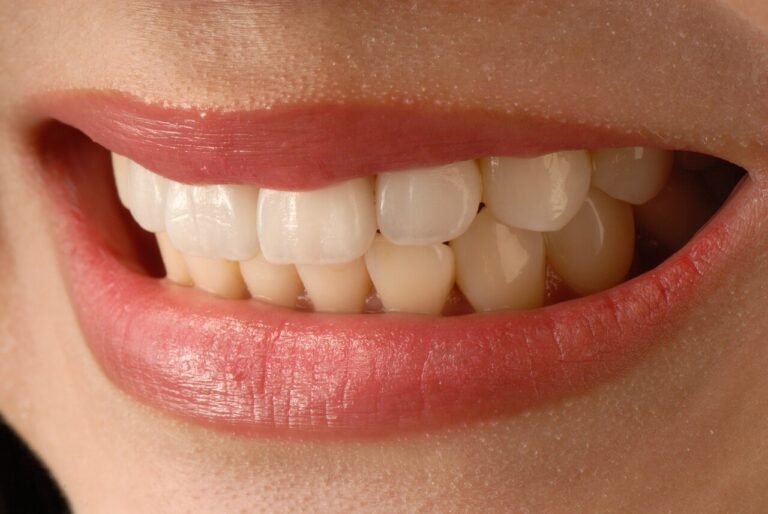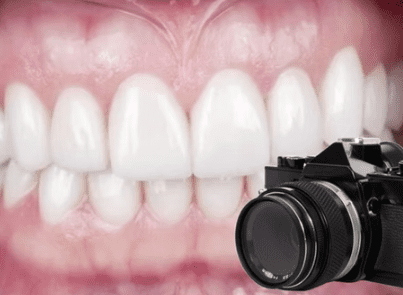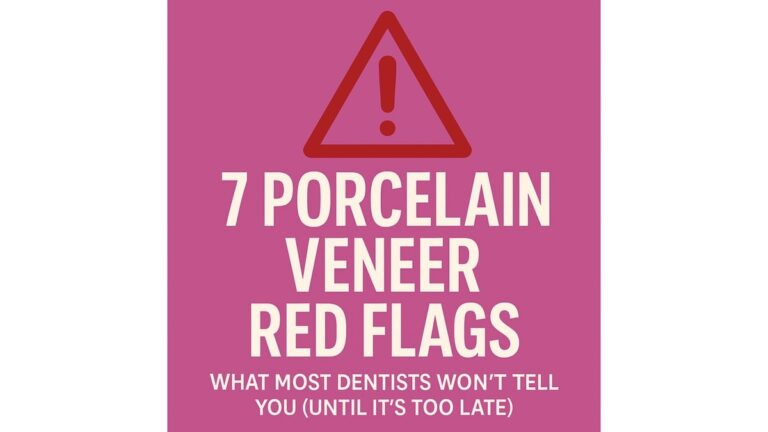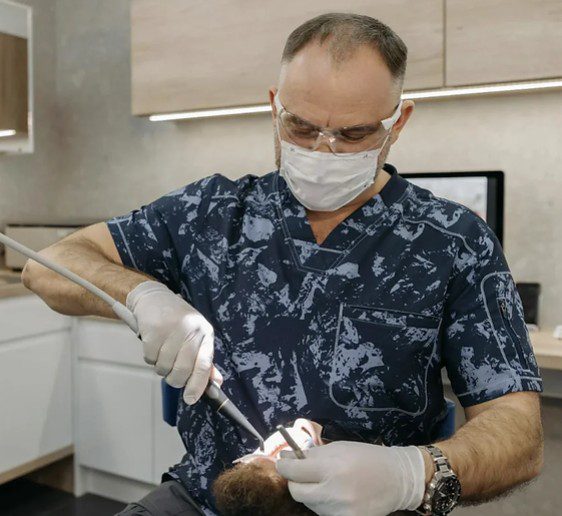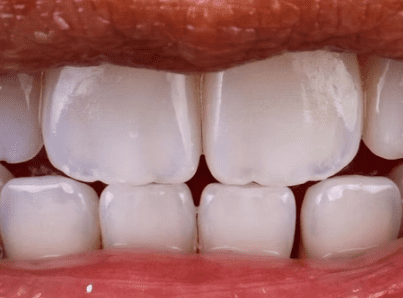Originally published on March 24, 2025. Updated on May 18, 2025.
If You’re Under 65, Read This First
Porcelain veneers and crowns have become popular solutions for achieving a “perfect” smile. However, these procedures come with long-term consequences that many patients aren’t warned about.
If you’re under 65 and considering veneers or crowns purely for aesthetics, you may be setting yourself up for a lifetime of expensive and irreversible dental problems.

The Harsh Reality of Porcelain Veneers and Crowns
Porcelain veneers and crowns require permanently altering your natural teeth. Veneers involve shaving down enamel to bond thin porcelain shells, while crowns require even more aggressive tooth reduction.
Once your enamel is gone, it’s gone for life. Many dentists market these procedures as simple cosmetic fixes, but in reality, they are long-term dental commitments with serious risks.
The Lifelong Replacement Cycle
Porcelain restorations don’t last forever. On average, veneers need replacing every 10–15 years, and crowns may last 15–20 years.
This means that if you get them in your 20s, 30s, or even 40s, you’ll be replacing them multiple times over your lifetime.
Unnecessary Damage to Healthy Teeth
Break your content into smaller sections using headings and subheadings. This improves readability and also allows you to incorporate secondary keywords.
The True Cost of Cosmetic Dentistry Over a Lifetime
A single veneer can cost $2,000–$3000 per tooth in the United States, while crowns range from $800–$3,000.
Over a lifetime, the costs for replacements can easily exceed $100,000+, especially if complications arise. Many patients aren’t financially prepared for the maintenance these procedures require.
And those costs don’t account for related expenses, emergency visits, root canals, travel to specialists, or time off work for multiple dental appointments. The emotional and financial toll often becomes overwhelming
Root Canals, Nerve Damage, and Tooth Loss: The Hidden Fallout
Aggressively reshaping teeth increases the risk of nerve damage, which can lead to root canals or extractions. If a tooth eventually fails, the only option is a bridge or dental implant—both of which come with their own set of long-term expenses and risks.
What Dentists Aren’t Telling You (But Should)
The cosmetic dental industry is a business, and many dentists prioritize profit over patient well-being.
Patients are often not told that veneers and crowns are irreversible or that they’ll need costly replacements for the rest of their lives.
Many patients report being told veneers “last a lifetime” or that they’re “minimally invasive,” only to discover years later that their teeth are permanently altered and require complex maintenance.
True informed consent should include photos of prepped teeth, long-term costs, and risks, but this is rarely part of the consultation
A Safer Alternative: Preserve Your Natural Teeth with Composite Resin Veneers
For those looking to improve their smile without compromising their dental health, enhanced resin composite bonding is one of the most effective and conservative alternatives to porcelain veneers.
Unlike traditional veneers and crowns, this method does not require enamel removal, allowing your natural teeth to remain fully intact.
With advanced techniques, experienced dentists can achieve beautiful, natural-looking results that closely mimic the appearance of porcelain, without the risks of irreversible tooth reduction.
Pioneers in this non-invasive approach include Dr. Marshall Hanson, Dr. Jordan Davis, and Dr. Alec Hall, who are helping reshape the future of cosmetic dentistry with treatments that prioritize safety, function, and long-term outcomes.
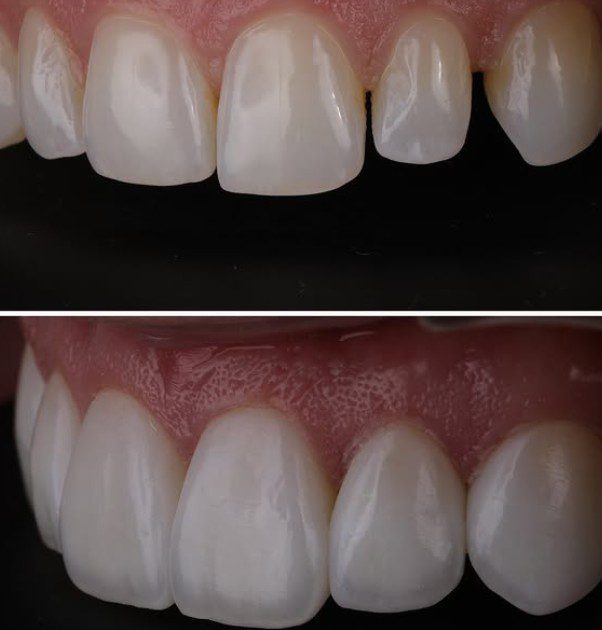

Other Non-Invasive Smile Options That Actually Work
Not every smile improvement requires drilling or irreversible procedures.
Options like professional whitening, orthodontic aligners, and consistent oral hygiene can enhance your appearance naturally.
These approaches work with your existing teeth rather than against them, helping you achieve a healthier, more sustainable smile without sacrificing enamel.
Who Actually Needs Porcelain Veneers or Crowns?
Porcelain restorations do have a place in dentistry. They can be necessary for patients with severe wear, structural damage, or medical conditions that weaken enamel.
But they should be used with caution as a last resort rather than the first choice for cosmetic treatment.
More and more, porcelain veneers are being promoted on Google and by dentists as a quick fix for small chips, minor gaps, or slight asymmetry.
These are issues that could often be addressed with less invasive options like Invisalign, bonding, or enhanced composite veneers that do not require any removal of natural tooth structure.
This approach of reshaping healthy teeth for purely aesthetic reasons is not only aggressive but also unethical. It permanently alters teeth that were otherwise strong and healthy.
Your natural teeth matter. Once they are gone, they are gone for good. Choose solutions that protect what you already have and focus on long-term oral health without unnecessary damage.
The Bottom Line
Porcelain veneers and crowns may offer quick cosmetic results, but for patients under 65 with healthy teeth, they are often unnecessary and damaging. These procedures remove natural enamel, carry lifelong maintenance costs, and can lead to serious complications down the line.
The good news is there are safer, less invasive alternatives. Options like Invisalign and enhanced composite veneers can improve your smile without harming your teeth.
The bottom line is simple. If your teeth are healthy, protect them.
Choose solutions that preserve what you have, not procedures that permanently take it away.

Disclaimer: This content is for informational purposes only and does not constitute medical or dental advice. Always consult with a licensed dental professional before making decisions about your oral health.
